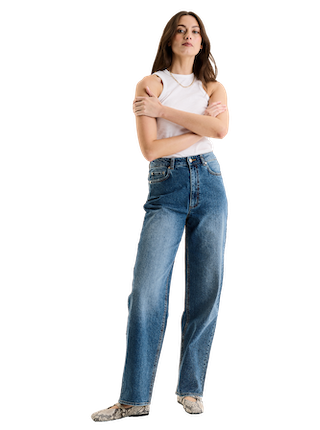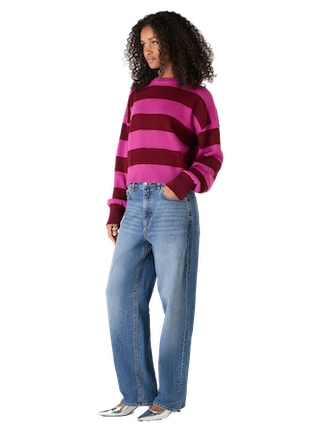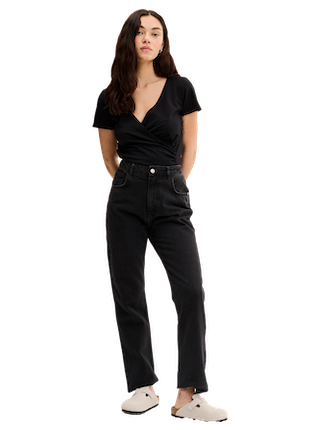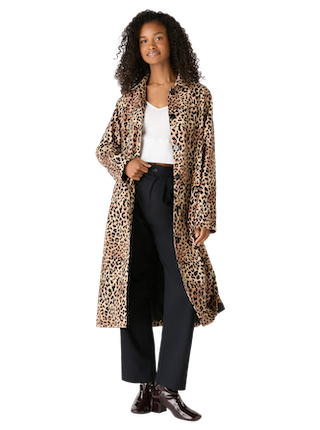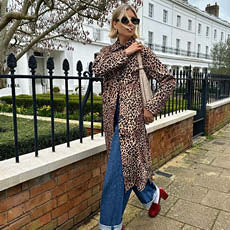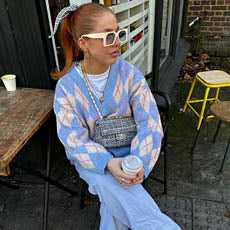Fabrics that are
responsibly sourced.
At OMNES, our aim is to always use the lowest impact fabrics possible for our designs, prioritising organic, recycled and deadstock materials, whilst continually exploring new sustainability solutions and innovations.
We know there is an inherent environmental impact involved in producing new textiles. More often than not, it requires the farming, harvesting and mining of raw materials, use of resources including water and energy, and potentially hazardous chemicals and dyes. But by making responsible material choices, considering not only the quality, feel, and functionality, but also the environmental and social impacts of a fabric – for example where the raw materials were grown and in what conditions, if pre-existing resources could be utilised, and what globally recognised certifications have been granted to the supply chain – we can bring to life designs that truly consider the wellbeing of people and our planet.

Our goal is to only use biodegradable, recycled, or existing materials that can fit into a circular economy.
Materials we love and use:

LENZING ™ ECOVERO™ viscose
A lightweight and drapey fabric, LENZING™ ECOVERO™ viscose is produced using wood pulp from sustainably managed forests, a renewable raw material that will eventually biodegrade naturally. The non-profit environmental protection organisation Canopy has ranked Lenzing among the top viscose producers worldwide for its sustainable wood and pulp sourcing practices ensuring that illegal deforestation is avoided. LENZING™ ECOVERO™ fibres are certified with the EU Ecolabel.

LENZING™ TENCEL™
LENZING™ TENCEL™ Lyocell fibers are extracted from sustainably grown wood sources to ensure deforestation is avoided. It is produced using a unique closed loop system which recovers and reuses the solvents used, minimizing the environmental impact of production.
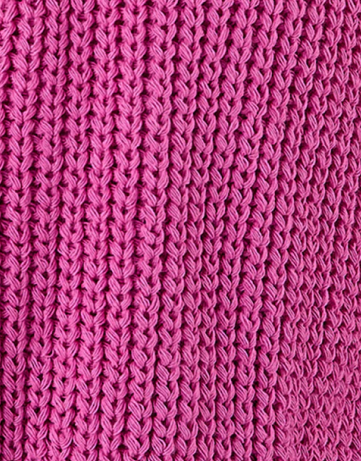
Organic Cotton
Organic cotton is grown without synthetic pesticides, insecticides and fertilisers, and from seeds that have not been genetically modified. Eliminating toxic chemicals protects the health of workers and local communities as air and groundwater supplies do not become contaminated, and soil health and biodiversity are protected. We always choose organic cotton when possible.

Cotton sourced from BCI members
The Better Cotton Initiative (BCI) supports licensed farmers by providing training on issues including water efficiency, caring for soil health and natural habitats, reducing the use of harmful chemicals and implementing decent work principles. Whilst BCI requirements differ from those of organic cotton standards, we will always choose cotton sourced from BCI members over conventional cotton if organic is not possible.

Discover our favourite pieces.
Shop now
Recycled Cotton
Recycled cotton gives new life to waste from the production process, reducing the need for new resources to be used.

Recycled Polyester
Satin-like and silky smooth, our Recycled Polyester fabric is made from post-consumer plastic bottles. Recycled polyester can be a less impactful alternative to conventional polyester as it does not use virgin resources, but makes use of consumer waste that would otherwise have gone to landfill.

Denim
Soft and supple, our denim is produced by Bossa – a fabric mill in Turkey that has embedded sustainability into its operations - and is made from a blend of LENZING™ TENCEL™ Lyocell and organic cotton, andcotton sourced from BCI members. Our black and grey colourways also utilise LENZING™ REFIBRA™ technology, which takes production cotton scraps and upcycles them into new TENCEL™ Lyocell fibres, contributing to a circular economy.

Wool
Biodegradable, recyclable, natural, long-lasting, easily repairable…the list of wool’s amazing credentials goes on and on. We use super soft Italian Merino wool and Mongolian wool that is responsibly sourced, always prioritising animal welfare standards.

Linen
Linen is a versatile, breathable, and biodegradable fibre that can be grown with minimal water and without the need for toxic chemicals.

Deadstock fabrics
Deadstock fabrics provide the opportunity to make use of existing resources over creating new materials. These could be fabrics that didn’t go to the intended buyer or weren’t made into finished garments. Historically, these deadstock fabrics could be simply destroyed and thrown away, eventually making their way into landfills. We have our own criteria for defining materials as deadstock, and ensure that any supplier certifies that their deadstock is a minimum of two years old.

Sustainability Report 2022
DownloadMaterials we choose not to use

Sequins
Sequins are a disaster for the environment. Most are made from petroleum plastics that are damaging to our natural ecosystems, and their shimmer is obtained through chemical or metallic coatings. These are not biodegradable and are also drawn from raw material sources that are limited. We will not use sequins in our designs until a satisfactory alternative is available.

Materials that induce the suffering or killing of animals
We do not, and will never, use any animal skins, fur, silk, feathers or down, angora, mohair or horn buttons in our designs.
Animal welfare is a key concern when sourcing animal-based materials such as leather and wool, and the traceability issues linked to the industry can make difficult to identify animal welfare breaches in supply chains. We therefore have established an animal welfare policy that you can read here. We do, however, prioritise the use of biodegradable natural fibres as we strive to select materials with the lowest possible lifecycle environmental impact, and as such are in support of using wool in our collections where strict requirements are met.
